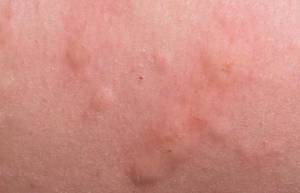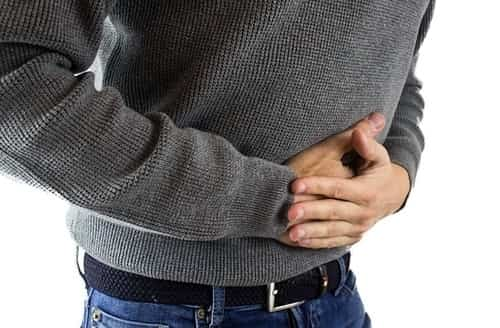Intestinal infections are a group of illnesses caused by harmful bacteria, viruses, or parasites that invade the digestive system. Commonly referred to as stomach flu or gastroenteritis, these infections often result in symptoms like diarrhea, abdominal pain, and vomiting. The intensity and duration can vary based on the pathogen involved and individual health factors.
Age Distribution of Intestinal Infection Cases
This chart illustrates the age distribution of intestinal infection cases, highlighting the vulnerability of young children (0–5 years) and older adults (65+ years).
How Common Are Intestinal Infections?
According to the Centers for Disease Control and Prevention (CDC), millions of cases of intestinal infections occur annually in the United States. These infections are a leading cause of illness in both children and adults, with norovirus and salmonella among the most prevalent pathogens.
Common Causes of Intestinal Infections
1. Bacterial Infections
- Salmonella: Found in undercooked poultry, eggs, and contaminated water.
- Escherichia coli (E. coli): Often linked to contaminated produce and unpasteurized dairy products.
- Campylobacter: Associated with raw or undercooked poultry.
2. Viral Infections
- Norovirus: A leading cause of outbreaks in schools, cruise ships, and nursing homes.
- Rotavirus: Primarily affects young children but can be prevented with vaccination.
3. Parasitic Infections
- Giardia lamblia: Found in contaminated water, especially in recreational bodies of water like lakes.
- Cryptosporidium: Known for causing waterborne outbreaks.
Symptom Duration by Pathogen Type
| Pathogen Type | Average Duration (Days) |
|---|---|
| Viral (e.g., Norovirus) | 2-3 Days |
| Bacterial (e.g., Salmonella) | 5-7 Days |
| Parasitic (e.g., Giardia) | 7-10 Days |
This chart illustrates the average symptom duration for intestinal infections caused by different pathogen types, emphasizing that viral infections resolve fastest, while parasitic infections may last up to 10 days.
Key Symptoms of Intestinal Infections
- Diarrhea (sometimes bloody in bacterial cases): Diarrhea can range from mild to severe and is often watery. In bacterial infections like Shigella or E. coli, blood or mucus may appear in the stool, indicating intestinal inflammation. Persistent diarrhea increases the risk of dehydration, especially in children and elderly individuals.
- Abdominal cramps and pain: These are caused by the body’s attempt to expel the infection and inflammation in the intestinal lining. For example, infections like Campylobacter often produce cramping severe enough to mimic appendicitis.
- Nausea and vomiting: These symptoms are the body’s defense mechanisms to expel ingested toxins. Viral infections, particularly norovirus, are notorious for sudden-onset vomiting.
- Fever: A sign of the immune system’s response to pathogens, fevers are common in bacterial infections like Salmonella. High-grade fevers (>102°F) may indicate systemic spread and require medical attention.
- Fatigue and dehydration: Fatigue results from energy loss due to nutrient malabsorption and immune activity. Dehydration, characterized by dry mouth, reduced urination, and dizziness, can escalate quickly if fluid losses from diarrhea and vomiting are not replaced promptly.
Who Is at Risk?
Intestinal infections can affect anyone, but some groups are more vulnerable:
- Young children and elderly individuals: Children under five and seniors over 65 often have weaker immune systems, making them more susceptible to severe dehydration and complications. For instance, rotavirus infections can be life-threatening in unvaccinated toddlers.
- People with weakened immune systems: Those undergoing chemotherapy, living with HIV/AIDS, or taking immunosuppressive medications are at higher risk of prolonged infections. For example, cryptosporidiosis can become chronic in immunocompromised patients.
- Travelers visiting areas with poor sanitation: Travelers to regions lacking clean drinking water or proper waste disposal frequently encounter pathogens like Giardia and E. coli. “Traveler’s diarrhea,” affecting up to 70% of international travelers, is a common example.
- Residents in crowded or communal living spaces: Shared facilities in dorms, nursing homes, or refugee camps facilitate the rapid spread of infections like norovirus or Shigella due to close contact and limited hygiene resources.
How Are Intestinal Infections Diagnosed?
Diagnosis often involves a review of symptoms and travel history.
- Stool Tests: These tests, costing around $20 to $50, identify specific pathogens like bacteria or parasites. Results are typically available within 1 to 3 days, although rapid stool antigen tests can provide preliminary results in a few hours.
- Blood Tests: Priced at $50 to $150, blood tests detect systemic infections or markers of inflammation. Results are generally available within a day, making them a quick and reliable diagnostic tool.
- Imaging Techniques: Abdominal X-rays or CT scans, costing between $100 and $500, are used to rule out complications such as intestinal blockages. These methods provide immediate results and are especially useful for identifying severe conditions requiring urgent intervention.
Effective Treatment Options
1. Hydration and Electrolyte Replacement
- Oral rehydration solutions (ORS) are crucial, particularly for children and older adults. Studies show that ORS can reduce mortality from severe dehydration by up to 90% in vulnerable populations. For example, in cholera outbreaks, ORS has been life-saving in rural clinics.
- Severe dehydration may require intravenous fluids. Emergency rooms often use this method to stabilize patients quickly, especially those with symptoms like persistent vomiting or extreme fatigue. Intravenous therapy can restore hydration levels within hours.
2. Medications
- Antibiotics for bacterial infections like salmonella or shigella (only when prescribed). For instance, ciprofloxacin has been shown to reduce the duration of symptoms by 2–3 days in severe salmonella cases but is only recommended for high-risk patients.
- Antiparasitic drugs for conditions caused by Giardia or Cryptosporidium. Medications like metronidazole can clear giardiasis infections in about 90% of cases with a standard 7-day treatment.
- Antidiarrheal medications (used cautiously and only when advised by a doctor). In some studies, loperamide has helped reduce diarrhea frequency by 50% in travelers, though it should not be used if bacterial infection with fever or bloody stools is suspected.
3. Rest and Supportive Care
- Adequate rest to support the immune system’s recovery process. Patients recovering from viral gastroenteritis often report improved energy levels within 48 hours with proper hydration and rest.
- Gradual reintroduction of easy-to-digest foods, such as bananas, rice, applesauce, and toast (BRAT diet). Clinical observations suggest that this diet helps reduce gastrointestinal discomfort in 80% of mild cases, making it a preferred choice for managing symptoms at home.
Preventing Intestinal Infections
1. Hygiene Practices
- Frequent handwashing with soap and water, especially after using the bathroom or handling food. Use a timer or sing a song to ensure you wash for at least 20 seconds.
- Sanitizing kitchen surfaces and utensils. For example, use a diluted bleach solution or specialized kitchen disinfectant sprays to clean cutting boards and countertops.
- Avoiding sharing utensils, cups, or towels to minimize cross-contamination.
2. Safe Food and Water
- Properly cooking meat and poultry to safe temperatures. Use a food thermometer to ensure meats reach the recommended internal temperatures (e.g., 165°F for poultry).
- Avoiding raw or undercooked seafood. Sushi and shellfish should be from reputable sources, and always check local advisories for safety.
- Drinking only treated or bottled water while traveling. If bottled water is unavailable, boil water for at least one minute or use water purification tablets.
- Washing fruits and vegetables thoroughly under running water. Peel fruits when possible to reduce exposure to contaminants.
3. Vaccinations
- Rotavirus vaccines are highly effective in preventing severe cases in children. Ensure children receive all doses according to the CDC’s vaccination schedule.
- Stay informed about other vaccines recommended for travelers, such as typhoid or cholera, which may prevent specific waterborne infections.
When to Seek Medical Attention
If you experience any of the following, consult a healthcare provider immediately:
- Blood in stool
- High fever (≥102°F)
- Signs of severe dehydration (e.g., dry mouth, decreased urination, confusion)
- Symptoms lasting more than a few days
Common Sources of Contamination
| Source | Incidence (%) |
|---|---|
| Undercooked Poultry | 40% |
| Contaminated Water | 30% |
| Unwashed Produce | 20% |
| Cross-contaminated Surfaces | 10% |
This chart highlights the common sources of contamination leading to intestinal infections, with undercooked poultry being the most prevalent at 40%.
Editorial Advice
Intestinal infections are common but preventable illnesses that can significantly impact quality of life. Recognizing the symptoms early and seeking prompt medical attention can prevent complications. Incorporating good hygiene practices, safe food handling, and vaccinations into daily life can reduce the risk of these infections, ensuring better digestive health for individuals and communities alike.









